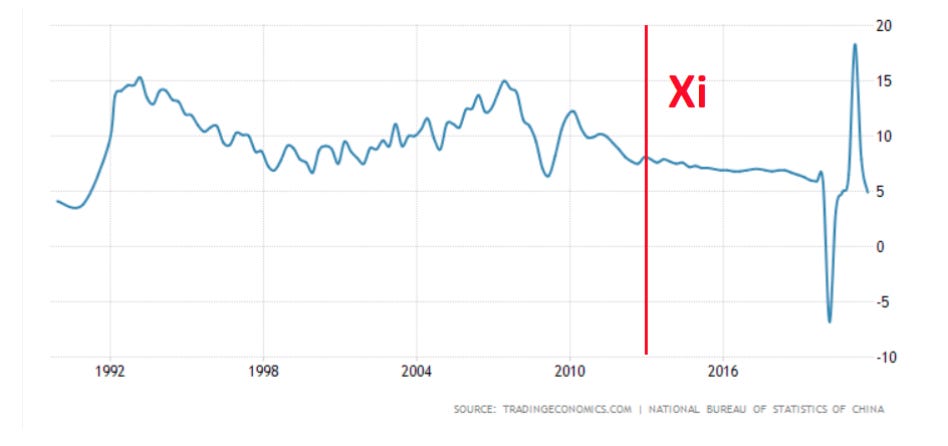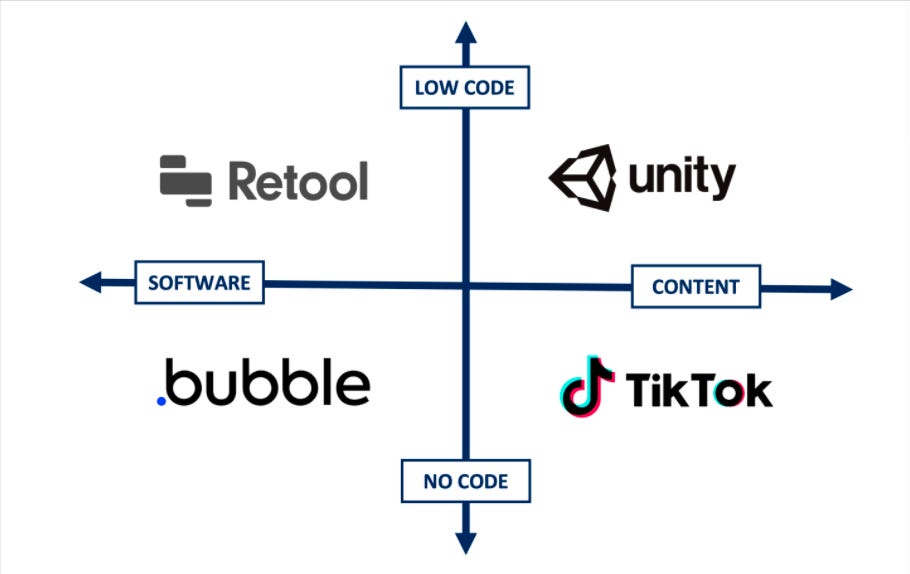Twitter is publicising algorithm reports, the music industry spies a future without predatory record deals and how composability is web3’s super power.
Composability
From Not Boring, by Packy McCormick
Composability, the capacity to fuse various software components, is one of the key features of web3 which over time becomes a powerful Lego brick tower.
DeFi 2.0 is a great example: smaller, faster progressions compound quickly for big results - less than a year after DeFi 1.0, OlympusDAO launched with newer and better solutions (protocols own their liquidity rather than renting it).
Olympus has since been a building block itself as software and ideas have generated new by-products, such as Kilma.
Another great example: the ideas and plans circulating since ConstitutionDAO.
Has China stopped catching up?
From Noahpinion, by Noah Smith
China’s momentous catch-up growth, which pulled million out of poverty, is now beginning to show sign of slowing.
Two main reasons:
1) Rising upkeep costs by building more physical capital (buildings, roads, vehicles) vs. lower added output.
2) it’s much easier to replicate existing technologies from others than invent new things yourself.
China has also been hit by 4 key economic difficulties: (1) a real estate crash; (2) an electricity crunch; (3) Xi Jinping’s industrial crackdown; (4) Delta Covid, together with China’s zero-Covid policy.
Failing and fixing in public
From Platformer, by Casey Newton
Internal research teams often unearth hard truths within big tech firms. Twitter has rather refreshingly published its unflattering discoveries.
Twitter attached a 27-page report explaining its findings on how tweets from right-wing politicians receive more amplification from its algorithm over left-wing sources.
This comes after the company invited the public to find biases in its photo-cropping algorithms this summer to improve findings.
Bottom line: responsible AI is somewhat difficult as algorithm decisions are not completely understood and no one true consensus on what ranking algorithms should do.
The end of predatory record deals?
From Platformer, by Casey Newton
The startup Royal, founded by DJ Justin Blau, is on a path to overturn old relationships between artists and their music labels with the help of blockchain.
Labels typically have all the leverage, Royal hopes to allow artists to sell ownership stakes to their fans:
1. Artists choose how much royalty share to put on hold for LDA (limited digital asset) as well as how many ‘official editions’ to mint per song.
2. Royal assists in the sale of LDA tokens and generates money for the artists with chances for future income from song owners.
Low code & no code creations
From Digital Native, by Rex Woodbury
Low code / no code movement gives developers and creators to build and create with less friction, supercharging innovation and content creation.
A great example: Weta Digital’s tools, which brought magical worlds and creatures alive on our screens, will soon be accessible to everyone after being bought by Unity.
The more affordable and accessible creative tools get, the more creation booms and low code / no code tools will continue to push the boundaries of what and who can create, causing an explosion in software and content.
Extra Reading
20+ paradoxes of life (The Curiosity Chronicle, Sahil Bloom)
Moving forward when your career path seems stagnant (Perspectives, Deb Liu)
Notion: the embattled artist (Napkin Math, Evan Armstrong)
Step-by-step guide to your first 1000 community members (First Round Review)
China’s new privacy laws (Axios Login)
Beginner's Guide to Cryptocurrencies (Creator Economy, Peter Yang)








